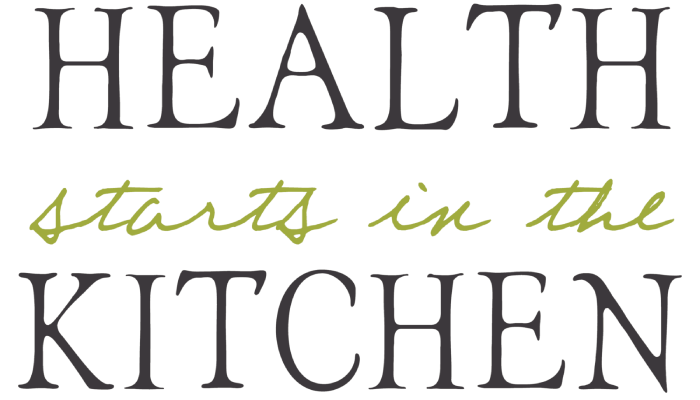Pest Control in the Kitchen: Safeguarding Your Food
In the warmth of our homes, kitchens serve as bustling hubs of culinary creativity and family gatherings. Yet, these cherished spaces can unwittingly become sanctuaries for uninvited critters.

Recognizing the critical intersection of hygiene, health, and happiness within these culinary confines, establishing a vigilant pest control regimen emerges not just as a choice, but a necessity.
Ensuring the sanctity of our kitchens against these invaders is essential in preserving both the quality of our food and our overall well being.
Several pests are commonly found in kitchens, including cockroaches, rodents, fruit flies, and pantry pests such as beetles and ants.
These pests can spread various pathogens like E. coli, salmonella, and hantavirus, and their presence can lead to food contamination, allergies, and asthma exacerbation.
Preventive Measures
Store Food Properly
Keeping food in airtight containers and perishables in the fridge or freezer is essential. Ensuring food storage areas are clean and free from crumbs can significantly deter pests.
Keep Kitchen Clean
Regular cleaning of surfaces, appliances, and proper waste disposal are key. Pests are attracted to food residues, so keeping the kitchen free from spills and crumbs is vital.

Photo by Dmitry Zvolskiy: https://www.pexels.com/photo/chopping-boards-near-oven-under-hood-2062426/
Seal Entry Points
Pests can enter through tiny cracks and gaps. Sealing these using caulking or weather-stripping around windows and doors can help keep pests out.
Use Natural Repellents
Natural repellents such as peppermint oil for ants and mice or bay leaves for pantry pests can be effective, safe options for deterring pests without using harsh chemicals.
Natural Pest Control Methods
Using natural remedies and solutions for pest control in the kitchen not only minimizes health risks but also reduces environmental impact.
Many of these methods utilize everyday items and ingredients, offering an eco-friendly alternative to chemical pesticides.
Use of Herbs and Essential Oils
Herbs and essential oils are potent natural deterrents for many common kitchen pests. For instance:
- Peppermint Oil: Effective against ants and mice, peppermint oil can be diluted with water and sprayed in areas where pests are found. Its strong scent acts as a natural repellent.
- Bay Leaves: Placing bay leaves in pantry areas can help deter pantry pests like weevils and moths. The leaves’ scent is off-putting to these insects but is completely safe for human food storage.
Homemade Repellents
Creating your own pest repellents allows for a customizable and safe approach to pest control:
- Vinegar Spray: A mixture of water and vinegar can repel ants and fruit flies. The acidity disrupts their scent trails and deters their activity.
- Diatomaceous Earth: Though not a homemade mixture, spreading diatomaceous earth around entry points and in corners can effectively kill insects like ants, roaches, and fleas by dehydrating them.
Professional Pest Control for Ants
While natural methods can be effective for minor infestations or preventive measures, severe or persistent pest problems, especially with ants, often require professional intervention.
The Importance of Professional Ant Control
Professional pest control services can offer more comprehensive solutions to ant infestations. They have access to a wider range of products and methods that are not available to the general public.
Professionals can identify the specific type of ant causing the problem, which is crucial for effective treatment since different ant species may require different approaches.
Professional pest control for ants typically involves:
- Inspection and Identification: A thorough examination of the premises to identify ant species and the extent of the infestation.
- Treatment Plan: Based on the inspection, a tailored treatment plan is developed, which may include baiting, chemical treatments, and physical barriers.
- Follow-Up and Prevention: Professionals often provide follow-up services to ensure the effectiveness of the treatment and offer advice on preventing future infestations, such as sealing entry points and eliminating food sources.
Professional pest control services not only address the immediate problem but also help safeguard your kitchen against future infestations, ensuring a clean and safe environment for food preparation and storage.
Maintaining a Pest-Free Kitchen
Keeping your kitchen pest-free is an ongoing process that involves regular vigilance and adherence to preventive practices. A pest-free kitchen not only ensures the safety and hygiene of your food but also contributes to the overall health and comfort of your home.

Photo by Jean van der Meulen: https://www.pexels.com/photo/white-wooden-kitchen-cabinet-1599791/
Long-term Strategies for Keeping the Kitchen Pest-Free
Regular Inspections: Periodically check for signs of pests or entry points into your kitchen. This includes inspecting pantry areas, behind appliances, and around windows and doors for any gaps or cracks that could serve as entryways for pests.
Continuous Adherence to Preventive Practices: Consistently follow the preventive measures discussed, such as proper food storage, regular cleaning, and using natural deterrents. By making these practices a part of your routine, you can significantly reduce the likelihood of pest infestations.
Takeaway
Maintaining a pest-free kitchen requires a combination of proactive measures and regular maintenance.
By storing food properly, keeping the kitchen clean, sealing entry points, and using natural or professional pest control methods when necessary, you can effectively prevent pest infestations.
A little effort goes a long way in safeguarding your kitchen against pests, thereby protecting your health and ensuring the safety of your food.
It’s important to take pest control seriously and act swiftly at the first sign of an infestation to keep your kitchen safe and hygienic. Regularly implementing these strategies and practices will help maintain a clean, healthy, and pest-free kitchen environment for you and your family.






